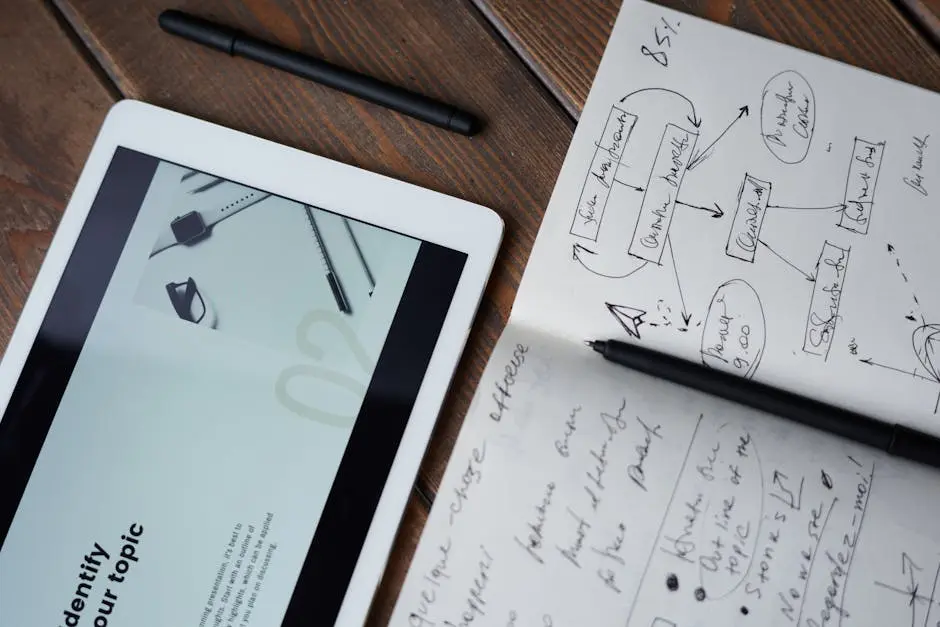

Balancing a busy work schedule with studying for the Project Management Professional (PMP) exam can be quite a challenge. However, with the right strategies, you can carve out time to prepare effectively without feeling overwhelmed. In this article, we’ll explore some helpful tips to create a manageable and successful PMP study plan, tailored specifically for busy professionals like you.
1. Set Clear Study Goals
Defining what you want to achieve in your study sessions can help keep you focused. Break your study materials down into manageable objectives that you can tackle one at a time. For instance, rather than setting a vague goal to ‘study project management,’ frame it more specifically, such as ‘understand the five process groups.’ This kind of clear goal not only provides direction but also gives you a sense of accomplishment as you check off each item.
Moreover, consider setting a timeline for each goal. Deadlines can create a sense of urgency and help you stay motivated. Visual cues, like a planner or a bullet journal, may serve as a constant reminder of what lies ahead. They also allow you to celebrate milestones, no matter how small, which is vital in maintaining enthusiasm throughout your studying.
2. Create a Realistic Schedule
Take a close look at your weekly commitments and set aside specific times for studying. It’s crucial to balance your professional and personal life while ensuring you stick to your PMP study schedule. A well-structured plan often includes a combination of shorter study sessions during the week and longer, more immersive sessions during the weekend. This flexibility allows you to adapt your study strategy based on your work-related demands.
Incorporate time for review and self-assessment as part of your schedule. It’s not enough to just read through your materials; reviewing what you’ve learned is key to retention. Consider building in at least one day per week strictly for this purpose, spent quizzing yourself or discussing concepts with a peer. This review period helps reinforce your knowledge and prepares you for the unexpected questions that might come up in the exam.
3. Utilize Study Resources Effectively
Whether it’s books, online courses, or study groups, choose the resources that best fit your learning style and make the most of them. Don’t hesitate to mix different formats for a well-rounded approach. For example, you might find that videos explain concepts more clearly than textbooks or that hands-on practice helps solidify your understanding. By diversifying your study materials, you not only keep things interesting but also give yourself multiple ways to grasp the same information.
Additionally, consider leveraging technology. There are numerous apps designed specifically for PMP exam preparation that include flashcards, practice questions, and timers to mimic exam conditions. Engaging with these tools on public transportation or during breaks can turn idle time into productive study sessions, ensuring that even the busiest professionals can find moments to review their material.
4. Incorporate Active Learning Techniques
Engage with the material actively by taking notes, summarizing concepts, or teaching someone else. These methods can significantly enhance your retention and understanding. For instance, after studying a chapter, try explaining the content to a friend or a family member; this forces you to articulate what you’ve learned and helps identify any gaps in your understanding.
Try other avenues for active learning, such as drawing mind maps or creating flashcards for quiz-style testing. The key here is to challenge yourself to process the material in various ways. The more you interact with the content, the more likely it will stick. By diversifying your study techniques, you effectively prepare yourself for the types of questions you might encounter on the actual exam.
5. Take Regular Breaks
Studying for long periods without breaks can lead to burnout. Implement the Pomodoro technique or similar strategies to maintain focus and keep your mind fresh. For every 25 minutes of studying, take a 5-minute break to stretch or walk around. This short respite rejuvenates your brain and prevents fatigue, allowing you to return to your study materials with renewed clarity and determination.
Don’t overlook the power of longer breaks too. Schedule a full day off once or twice a month to recharge mentally and physically. Use this time to disconnect from your study plan—go for a hike, indulge in a hobby, or spend quality time with loved ones. These breaks, while seemingly counterintuitive to studying, are crucial for long-term retention and motivation.
6. Practice with Mock Exams
Simulating exam conditions can help you get used to the format and timing of the test. Regular mock exams will also aid in identifying areas where you need to focus more. Consider scheduling these practice tests every few weeks as a benchmark for your progress. This approach not only builds your test-taking stamina but also reveals how effective your study techniques are.
After completing a mock exam, take time to analyze your performance thoroughly. Break down the responses to understand where you excelled and where you fell short. This knowledge allows you to tailor your study sessions, directing your efforts toward weaker areas without neglecting your strengths.
7. Stay Connected with a Study Group
Joining a study group can provide accountability, motivation, and support. Engaging with others who are preparing for the exam allows for exchanging insights and tips. In a fast-paced world, the encouragement from like-minded individuals can invigorate your study sessions, keeping you on track and inspired to push through challenging material.
Make it a point to meet regularly, whether in person or virtually. This consistent interaction fosters a sense of community and shared purpose. Plus, discussing complex topics with peers can unveil new perspectives and understanding that you might have otherwise missed.
8. Focus on Your Well-Being
Remember to prioritize your physical and mental health during your PMP study journey. Exercise, eat well, and get enough sleep to enhance your cognitive function and concentration. Think of your mind as a muscle; sustained studying requires a strong foundation, and neglecting your body can hinder your ability to grasp and retain information effectively.
Consider integrating quick workouts or meditation into your study routine. These small acts can serve as a reset, boosting your energy and focus levels. Perhaps start your study session with a short jog, or wrap up with some relaxing stretching. Small adjustments like these can create a positive habit loop that not only aids your study efforts but also enriches your overall well-being.



